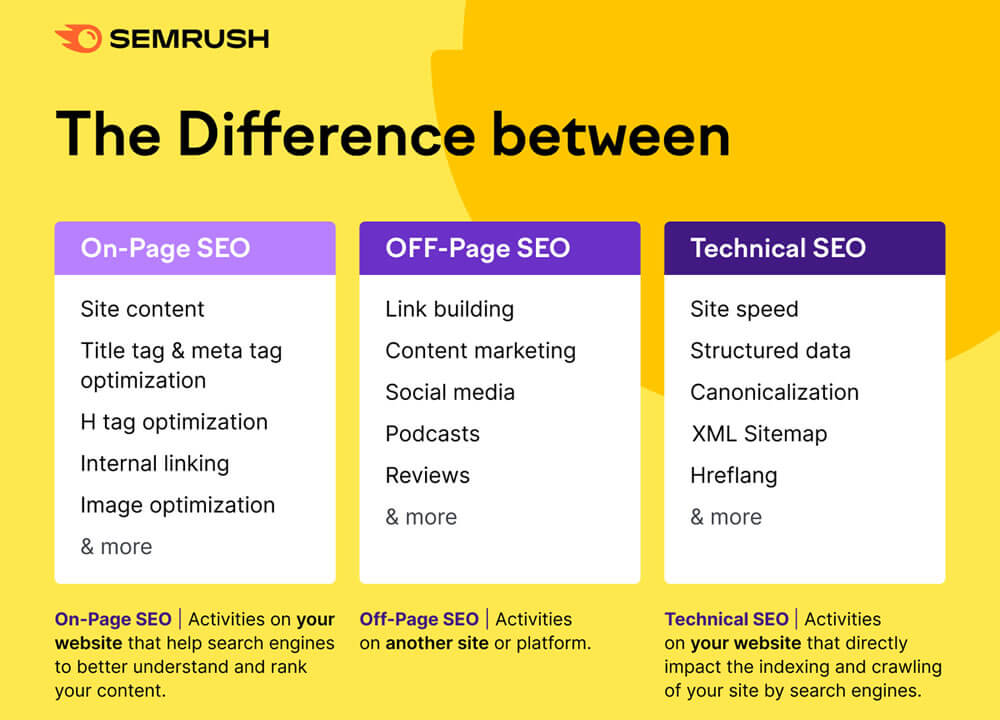- Tap for Menu
- Website Design ▼
- » Custom Website Design
- » Why Love Marketing Websites
- » Explore Website Features
- » Web Hosting Options
- » Website Design Process
- » Website Maintenance
- » Payment Options
- » Compare Website Options
- » Questions & Objections
- Portfolio ▼
- » ALL Website Examples
- » By WEBSITE TYPE ►
- » » 1PAGE Biz
- » » INTRO Biz
- » » BASIC Biz
- » » STANDARD Biz
- » » eCOM Sites
- » By BIZ NICHE ►
- » » Hospitality
- » » Product Sellers
- » » Professions
- » » Skilled Trades
- Testimonials
- Learning Center
- About ▼
- » Who We Are
- » Contact Us
Levin Local SEO Services NZ
- Navigation
- Website Design ▼
- » Custom Website Design
- » Why Love Marketing Websites
- » Explore Website Features
- » Web Hosting Options
- » Website Design Process
- » Website Maintenance
- » Payment Options
- » Compare Website Options
- » Questions & Objections
- Portfolio ▼
- » ALL Website Examples
- » By WEBSITE TYPE ►
- » » 1PAGE Biz
- » » INTRO Biz
- » » BASIC Biz
- » » STANDARD Biz
- » » eCOM Sites
- » By BIZ NICHE ►
- » » Hospitality
- » » Product Sellers
- » » Professions
- » » Skilled Trades
- Testimonials
- Learning Center
- About ▼
- » Who We Are
- » Contact Us
Levin is the most populous town and main urban centre in the Horowhenua District. Another populous area is Foxton.
With improved accessibility to Wellington, more people are seeing Levin as a great place to live, work, play and do business.
The HDC's transformation strategy recognises that the Levin town centre plays a key role in supporting employment, the regional economy and attracting people to live in the district.
Levin Attractions & Activities
Levin Business Support Services
Levin Business Networking Groups
- Horowhenua Local Business Directory
- Horowhenua New Zealand Trust Events Calendar
- Levin (and nearby) Business Events
- Levin BNG - The Business Networking Group
- Levin Businesses and Organisations - public Facebook group
- Manawatū Business Chamber Events Calendar
- Upcoming Business & Professional Events in Manawatū-Whanganui
Levin Digital Marketing & Local SEO Services
iBeFound Digital Marketing aims to do its part to support the local Levin business community by providing a range of NZ SEO services for local service businesses including SEO audits, keyword research, competitor analysis, SEO strategy, on-page optimisation, off-page optimisation, rank tracking, and monthly reporting for small business online marketing in New Zealand.
Ready to Improve Your Rankings & Revenue?
If you've had enough of not being found on page 1 of Google and you're finally ready to do something about it, get in touch and we'll check under the hood of your website to find the source of the problem.
Why SEO
If your website is
NOT showing up on page 1 of Google
for a wide range of relevant local keywords,
you're missing out on a world of free website traffic!
However, your website is NOT going to rank well on Google if there are underlying issues which make it difficult for search engines to discover it, crawl it, or assess its relevance for specific search terms.
The first step to improving your website's Google rankings is to have an SEO Audit performed by an SEO specialist. This SEO Audit will form the basis for uncovering and tackling any SEO issues your website might have.
You may have already heard the term SEO (which stands for Search Engine Optimisation), but did you know that there are a variety of ways to classify SEO including by geography, intent and technique?
But first, let's answer the question...
What is SEO?
Search Engine Optimisation (SEO) is the process of improving a website's visibility in search results with the aim of increasing the quantity and quality of search engine traffic to that website.
Let's dissect this definition a bit...
- SEO is a process NOT a destination.
- SEO can help boost your online presence.
- SEO can help you get more visitors to your website.
- SEO can help you generate targeted visitors to your website.
It should be noted that while the traffic you get from SEO is free, that does not mean that the SEO process itself is free. Doing SEO for your website will cost you time OR money OR both.
Now, let's take a closer look at what makes up search engine optimisation.
The 3 Main Components of SEO?
SEO involves looking at various aspects of a website to resolve issues that may be hindering the website's search performance; and to find opportunities for enhancing the website's search rankings.
These website aspects can be grouped into 3 main components that make up search engine optimisation.
Some aspects are on the website's hosting server or in the website's coding and these are known as technical elements. Analysing and improving these elements is known as Technical SEO.
Some aspects are related to the content on the website and these are known as on-page elements. Analysing and improving these elements is known as On-Page SEO or on-page optimisation.
Other aspects have nothing to do with the website itself and these fall into the category of off-page elements. Analysing and improving these elements is known as Off-Page SEO or off-page optimisation.
So, to clarify, Technical SEO, On-page SEO and Off-page SEO are NOT types of SEO. They are parts or components of search engine optimisation. Each component can be further subdivided into the factors which make up, or affect, that component.
Types of SEO in NZ and Beyond
As mentioned above, Search Engine Optimisation (SEO) can be classified in a variety of ways based on specific factors. These classifications are NOT mutually exclusive. They are just ways of looking at the same topic from different angles or through different lenses.
SEO Type by Geography looks at search engine optimisation from a proximity perspective. Is the website's content intended to be location-specific, country-specific, or is it for anyone, anywhere.
SEO Type by Medium looks at search engine optimisation from the perspective of the form of communication being targeted. Is the message primarily delivered by text or by images or by video or by voice?
SEO Type by Device looks at search engine optimisation from the perspective of the device being targeted. Is the message primarily for searchers on desktops or for searchers on mobile devices (smartphones, tablets, etc.)?
SEO Type by Approach looks at search engine optimisation from a philosophical perspective. Is the approach to doing SEO based on a narrow, limited view OR is it based on big-picture thinking.
SEO Type by User Intent looks at search engine optimisation from the perspective of the searcher. Is the searcher looking for a nearby business or point of interest? Is the searcher in research mode? Is the searcher in buying mode?
SEO Type by Technique looks at search engine optimisation from the perspective of the methods used to do the SEO for a website. Is the method within the guidelines / policies of the search engine? Is the method against the guidelines / policies of the search engine? Is the method somewhere in between?
SEO Type by Geography
- Local SEO
- Regional SEO
- National SEO
- International or Global SEO
SEO Type by Medium
- Text Search SEO
- Image Search SEO
- Video Search SEO (ex. YouTube SEO)
- Voice Search SEO
SEO Type by Device
- Desktop SEO
- Mobile SEO
SEO Type by Approach
- Holistic SEO
- Traditional SEO
SEO Type by User Intent
- Local SEO
- Organic SEO
- Ecommerce SEO
SEO Type by Technique
- White Hat SEO
- Black Hat SEO
- Grey Hat SEO
Other Types of SEO
The types of SEO listed above are NOT the only ways of classifying SEO. There are other classifications or groupings of SEO based on other ways of looking at search engine optimisation. Some notable ones are B2B SEO, Enterprise SEO, and Negative SEO.
No matter through which lens you look at SEO, all are built on the 3 main components of search engine optimisation: Technical SEO, On-Page SEO and Off-Page SEO.
Local SEO Services NZ
At iBeFound Digital Marketing, we focus on providing Local SEO Services. Our clients are primarily service businesses who work with customers in their local area.
We take a holistic approach to doing local SEO, and we use white hat SEO techniques to improve our clients' online visibility, website traffic and web-generated revenue across all devices.
Ranking locally is much easier AND faster to do than trying to rank regionally, nationally or globally.
Over the past 7 years, our clients have seen page 1 rankings within days of submitting URL indexing requests to Google. And I'm not talking about ranking for their business name or for some obscure keyword that no one would ever even think to search for. I'm talking about ranking for competitive search terms within their specific business niche.
As a result, they have experienced an increase in inbound enquiries. More leads coming in means more opportunities for new business and an increase in revenue.
Local SEO is Critical for Local Service Businesses:
Improve your website's visibility with quality local search engine optimisation.
This will help the right people to find your business at the right time.
If not, you risk missing out on a significant amount of potential revenue.
Ready to Improve Your Rankings & Revenue?
If you've had enough of not being found on page 1 of Google and you're finally ready to do something about it, get in touch and we'll check under the hood of your website to find the source of the problem.
Start the Conversation with a Consultation Request!
Check Out NZ Locations We Serve
Auckland Bay of Plenty Canterbury Gisborne Hawke's Bay Manawatu-Wanganui Marlborough Nelson Northland Otago Southland Taranaki Tasman Waikato Wellington West Coast See Recent Website Design Projects
© 2014 - 2026 iBeFound Digital Marketing,
a subsidiary of iBeFound International Ltd
PO Box 321, Hāwera 4640
021 227 9922

